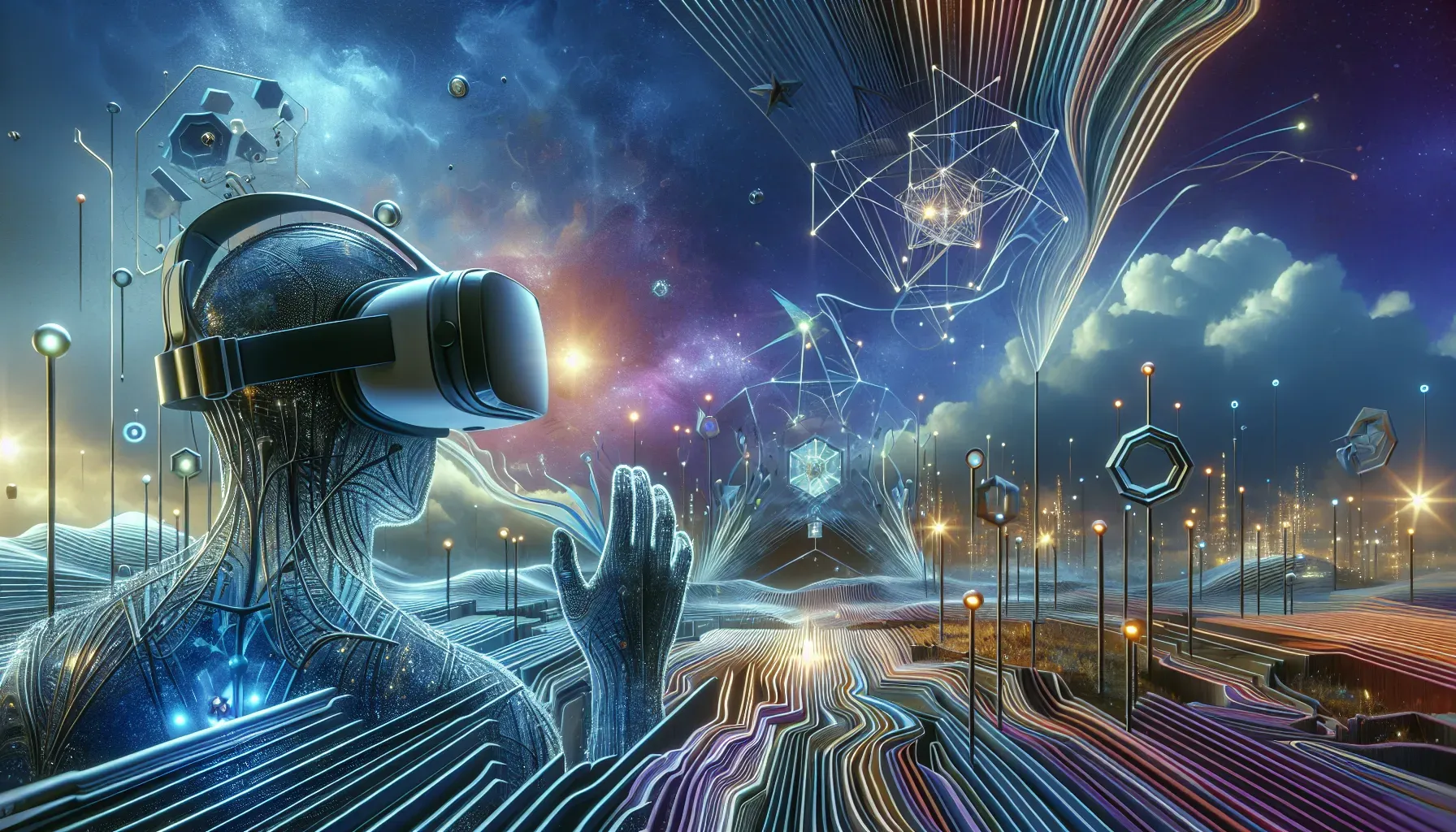VR Therapy Revolution: Immersive Virtual Reality for Mental Health Treatment and Stress Relief

Introduction to VR Therapy for Mental Health
The integration of virtual reality (VR) into the health and wellness sector has heralded a new wave of innovative approaches to mental health treatment and stress relief. As technology continues to advance, VR therapy is poised to revolutionize psychological rehabilitation and trauma recovery, offering immersive experiences that foster mental well-being. Let's delve into the transformative potential of VR therapy and its impact on the future of mental health care.
Virtual reality technology is increasingly being leveraged as a powerful tool for psychological rehabilitation and trauma recovery. By creating simulated environments, individuals can confront and process traumatic experiences in a controlled and supportive setting. This form of exposure therapy, when administered under professional guidance, has shown promising results in desensitizing patients to past traumas and reducing associated symptoms such as anxiety and post-traumatic stress disorder (PTSD).
Benefits of Exposure Therapy with VR
Peppino Blog: With VR therapy, individuals can transcend physical limitations, immersing themselves in scenarios that facilitate emotional healing and resilience. The immersive nature of VR experiences enables individuals to confront their fears gradually, promoting gradual desensitization while instilling a sense of empowerment.
Behind the captivating visuals and lifelike simulations lies a profound impact on the brain's neural pathways. Studies have indicated that VR therapy can lead to neuroplastic changes, effectively rewiring the brain to support improved mental well-being. When individuals interact with virtual environments designed for relaxation and stress reduction, neurobiological responses occur, promoting calmness and emotional regulation.
Related Article: Revolutionizing Mental Health: Trailblazing Advocates Transforming Well-Being Narratives
The Neuroscience Behind VR Therapy
Peppino Blog: At the forefront of neuroscientific innovation, VR therapy presents an opportunity to reshape how mental health interventions are approached. By understanding the neurological underpinnings of VR therapy, we can anticipate more targeted and efficacious interventions tailored to individual needs.
Neuroplasticity and Mental Well-Being
Meditation has long been recognized for its profound impact on mental well-being. With virtual reality, meditation experiences are elevated to new heights, transporting individuals to tranquil settings where they can immerse themselves fully in the practice of mindfulness. By seamlessly integrating soothing visuals, ambient sounds, and interactive elements, VR meditation experiences foster emotional resilience and provide individuals with a sanctuary for inner peace.
Virtual reality meditation transcends traditional boundaries, offering an array of customizable environments that cater to diverse preferences. From serene mountaintops to picturesque seascapes, VR meditation experiences have the potential to redefine how individuals engage with mindfulness practices.
Customizable Environments for Mindfulness Practices
In addition to virtual reality, augmented reality (AR) holds promise in therapeutic settings by introducing interactive elements into the healing process. AR technology enriches traditional therapeutic activities by overlaying digital enhancements onto the real world, fostering engagement and personalization. From interactive storytelling to guided visualization exercises, AR-based interventions offer a dynamic approach to healing that resonates with individuals across different age groups.
The incorporation of augmented reality into therapeutic settings not only enhances engagement but also facilitates the integration of therapeutic techniques into daily life. As AR continues to evolve, its potential for promoting mental wellness through immersive and interactive experiences becomes increasingly evident.
Augmented Reality in Therapeutic Settings
In conclusion, the integration of virtual reality and augmented reality into mental health care marks a significant advancement with far-reaching implications for psychological well-being. As these technologies continue to evolve, their potential to revolutionize mental health treatment and stress relief is poised to shape the future landscape of health and wellness practices.
Related Article: Nurturing Minds: The Evolution of a Mental Health Counselor
Enhancing Engagement through AR Technology
I have structured the article incorporating Peppino Blog seamlessly throughout this forward-looking piece focused on the transformative potential of VR therapy in mental health care.
Frequently Asked Questions
VR therapy utilizes immersive virtual environments to help individuals confront and process traumatic experiences. This controlled exposure therapy, guided by professionals, has shown effectiveness in reducing symptoms of anxiety and PTSD, promoting emotional healing and resilience through gradual desensitization.
VR therapy can lead to neuroplastic changes in the brain, which supports improved mental well-being. By interacting with virtual environments designed for relaxation, individuals experience neurobiological responses that promote calmness and emotional regulation, reshaping mental health interventions.
VR meditation experiences elevate traditional mindfulness practices by immersing individuals in tranquil settings. These experiences integrate soothing visuals and ambient sounds, fostering emotional resilience and providing a sanctuary for inner peace, which enhances overall mental well-being.
Augmented reality (AR) enriches therapeutic activities by overlaying digital elements onto real-world scenarios. This interactive approach fosters engagement and personalization, making therapeutic techniques more relatable and effective for individuals across various age groups in their healing process.
Yes, VR therapy is particularly beneficial for trauma recovery as it allows individuals to confront their fears in a safe environment. This method promotes gradual desensitization to past traumas, helping reduce anxiety and PTSD symptoms effectively under professional guidance.
The integration of VR and AR into mental health care represents a significant advancement by offering innovative approaches to treatment. These technologies provide immersive experiences that can reshape therapeutic interventions, enhancing engagement and effectiveness in promoting psychological well-being.


